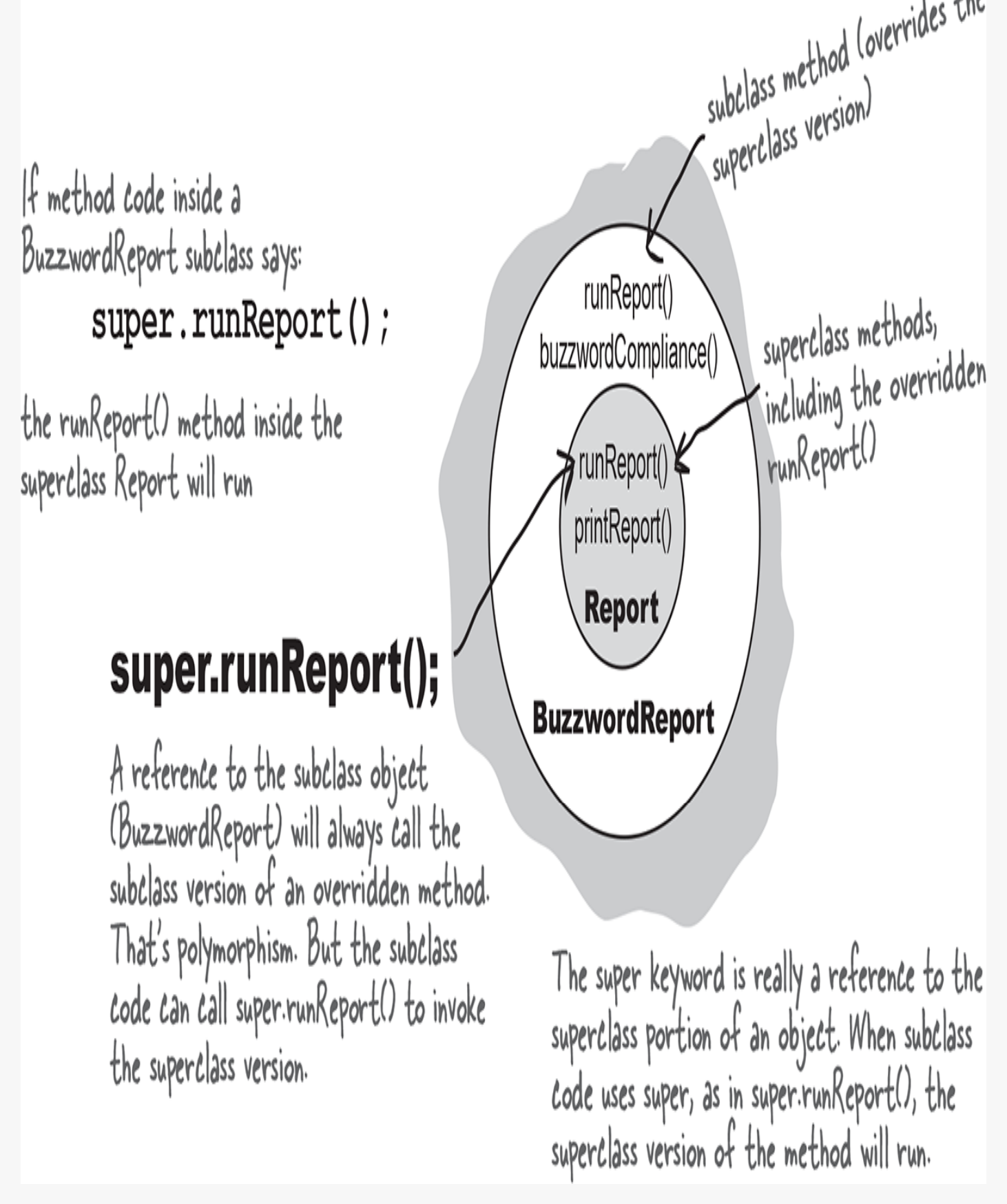Invoking the superclass version of a method
Java
What gives rise to needing the superclass version of method?
Q: What if you make a concrete subclass and you need to override a method, but you want the behavior in the superclass version of the method? In other words, what if you don’t need to replace the method with an override, but you just want to add to it with some additional specific code like more functionalities.
Ahhh…think about the meaning of the word extends. One area of good OO design looks at how to design concrete code that’s meant to be overridden. In other words, you write method code in, say, an abstract class, that does work that’s generic enough to support typical concrete implementations. But, the concrete code isn’t enough to handle all of the subclass-specific work. So the subclass overrides the method and extends it by adding the rest of the code. The keyword super lets you invoke a superclass version of an overridden method, from within the subclass.
abstract class Report{
//remember abstract class is to be extended
void runReport(){
//blabla
}
}
class BuzzReport extends Report{
void runReport(){
//call superclass version and do some sub-class stuff on it
super.runReport();
//blabla
}
}
